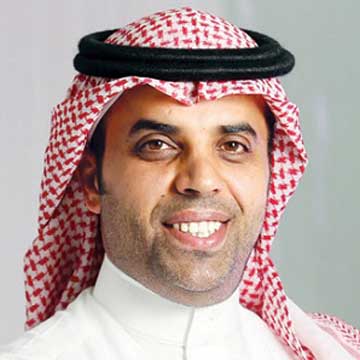Kingdom of Saudi Arabia (KSA) is among the top five largest foreign direct investors in India, and is among its top three crude oil import sources. KSA's cumulative investments in India is Rs 190 billion (or $27.48 billion) until February 2018.
To start a business with foreign investment in the largest gulf market, however, requires a licence from the Saudi Arabia General Investment Authority (SAGIA). SAGIA holds key influence over other government departments as well.
SAGIA also leads deployment of Saudi Arabia's Vision 2030 policies, which holds India as one of the six key strategic partners of the kingdom globally, along with the United Kingdom, China and France.
During the visit of Saudi Crown Prince Mohammed bin Salman in March, a number of business agreements were made. Riyadh rolled out the red carpet for Indian businesses during a delegate visit this year, and also gave licence to businesses in restrictive sectors like entertainment.
In an email interview to THE WEEK, Ibrahim Al-Omar, a member of the Saudi ruling family and governor of Saudi Arabian General Investment Authority (SAGIA), elaborates about the Saudi interests in India and about India's investments in the kingdom.
What is the present level of Saudi Arabia's investments in India and vice-versa?
India is a key partner and one of the major sources of investment into Saudi Arabia. Last year, we saw significant investments across a range of sectors, most notably manufacturing, financial services and wholesale and retail trading. Indian businesses have long operated across the Middle East and played a key role in its commercial development. A number of Indian companies are already thriving in Saudi Arabia, such as LuLu Hypermarkets—an Indian-owned business based in Abu Dhabi with significant investment in Saudi Arabia—and Tata Group which has a wide presence across a number of companies including Tata Consultancy Services, Tata Communications and Tata Motors Limited.
And this partnership works both ways.
Saudi Arabia’s Public Investment Fund is the largest contributor to the SoftBank Vision Fund—a major source of FDI inflows to India in 2018. So Saudi capital is already helping to fund the expansion of some of India’s most innovative businesses.
Several past efforts had been made by SAGIA and the Government of India to promote bilateral trade talks between chambers of commerce on both sides. How far have those worked?
Saudi Arabia is India’s fourth largest trading partner and as the many announcements of economic partnerships made during the Saudi Forum and Royal visit this February shows, bilateral links between our two nations are thriving.
During the official Royal visit, the Saudi Arabia General Investment Authority (SAGIA) and 'Invest India' initiated a framework for cooperation which will help further strengthen these ties. FDI and bilateral trade are closely linked, and our focus is to build on those efforts to enable Indian businesses to be at the heart of the next phase of the development of the Saudi economy and embrace the many commercial growth opportunities that it offers.
Following the recent visit of His Royal Highness Crown Prince Mohammed bin Salman, what is the interest level observed for Indians to invest in KSA?
We are excited by the conversations we have had and we see clear opportunities. Indian investors recognise that Saudi is open to business. There are clear areas where Saudi ambition and potential matches with Indian expertise and entrepreneurial drive.
This interest is being driven by the economic transformation taking place in Saudi Arabia that is opening new opportunities to international investors in the largest country in the Middle East by both landmass and GDP. To give a sense of the scope of that change, in the past two years alone, we have implemented around 45 per cent of around 500 economic reforms, based on feedback from investors and international institutions.
These reforms have included opening up a wide range of economic sectors to foreign investment, including allowing 100 per cent foreign ownership in a range of new sectors, issuance of business visas within 24 hours and business licenses in less than 24 hours and a broad series of reforms to the Kingdom’s legal environment.
Each of these reforms will make a real difference to businesses operating in Saudi Arabia as well as those hoping to do so in the future. And these reforms are having a real impact on investors.
Aggregate numbers do not tell the whole story on their own—but the fact that FDI in 2018 was 127 per cent higher than in 2017 is a positive sign.
What are the most significant aspects to look forward that emerged from the recent investment event of SAGIA, SCISP (Saudi Centre for International Strategic Partnership) and the Saudi-India Forum?
New investment licenses were issued to four businesses. As an example of how recent reforms have helped to open up opportunities, one of the licenses was issued to Carnival Cinemas, which has announced plans to open 500 cinema screens across Saudi Arabia over the next five years.
At the same time, 11 memorandums of understanding were signed between the private sector and government entities to explore opportunities for mutual growth. The announcements cover a range of partnerships across strategic growth sectors, including energy and water, technology, entertainment, healthcare, trade and investment.
We look forward to the development of those agreements and to progressing the discussions we had with many Indian investors looking to access the Saudi economy and the wider region. Our discussions reflected the strength and diversification of the Saudi economy, as well as the opportunities being unlocked for private sector businesses by widespread economic and social reforms as part of Vision 2030.



